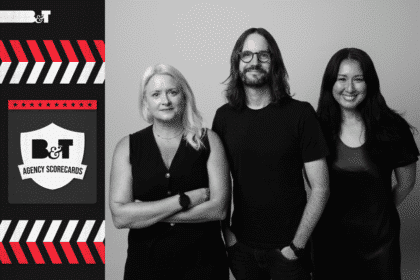Penny Shell, Zenith’s chief strategy and product officer, writes in this latest edition of Culture Bites how we’ve become obsessed with the idea of building a streak. And not always for the best.
We are a culture obsessed with streaking.
I’m not talking about infamous nudie runs during major cricket tests but rather the tech fuelled ‘credential’ that is influencing everything from our exercise rituals to our conversations with friends – streaker culture today.
Adopting the term from the ‘winning streak’ of sports culture, today’s streak is a design feature embedded into smartphone apps to build addictions rituals around specific app-enabled behaviours. The streak is a counter that incrementally builds with every day a specific activity is completed. Fail to complete the activity on any given day and your streak resets to zero. And just like that… we’ve become obsessed.
Your Streak Is A Credential
Smug is the streaker using language app Duolingo in their worthy commitment to learning a foreign language. Nearly 8 million Duolingo users have a streak running for more than 365 days. One of them happens to be my 14-year-old son, who has been learning Spanish, Portuguese and Arabic. He’s yet to test his real-world language application, but according to his 462-day streak, he should be pretty fluent by now.
More than once, I’ve been found running on the spot before bed to close my daily Apple Fitness rings and keep my exercise streak going. Meanwhile, Peloton greets every login with the user’s weekly streak count as motivation to continue their dedication to fitness.
On the socials, streaks are perhaps more highly valued than ‘likes’ amongst Gen Z – a demonstration of a more ‘exclusive’ friendship status, rather than mass appeal posting. ‘Snapstreaks’ are Snapchat’s acknowledgement of friendship, representing at least three days of continuous ‘snapping’ between two users. TikTok has the same streak model between two friends. Nothing to say? Choose from the millions of sharable #streak #streakreminder memes to send your friend and ‘save your streak’.
Fear of Failure
Losing a streak can be terrifying. The bigger your streak becomes, the higher its value – and the higher the stakes if we eventually need to start again.
According to Wendy Wood, author of Good Habits, Bad Habits: The Science of Making Positive Changes That Stick, “Simple ownership makes us like something more, and we own our streaks. Streaks are hard won. They’re something we value.”
In other words, streaks are susceptible to the endowment effect — the psychological perception by which we think anything in our possession is worth more than it actually is. Hence, the user who pays an additional $9.95 to repair their streak if they accidentally miss a day of activity…
Shifting The Loyalty Currency
For brands, streaks may extend loyalty programs to embed not only purchase, but usage rituals facilitated by owned or paid media assets. I’m sure it won’t be long before I’m logging my daily skincare routine into my Mecca app (let’s hope it helps with Beauty Loop status!)
A streak can be a data bridge between digital assets and real-world actions, helping to understand or prompt consumer behaviour and the loyalty loop.
For service, government and community initiatives, including a streak counter can further media’s influence over behaviour change. Streak based apps are already incentivising quitting alcohol or vaping.
While for the most part we keep our streaks as a source of private pride (or failure!), bringing people together for a common goal – such as carbon reductions, recycling, event participation or road safety – could be facilitated through applying streak-like counters outside individual experiences on apps and into mass media.
Streaking is now an established currency, heightening our dependence on tech as a lifestyle enabler and validator. If only I could feel as validated by a streak reflecting my hours bingeing Real Housewives or achieving consecutive days of ordering Uber Eats…
If you’re a creative or media strategist with a cultural phenomenon that has been gnawing away at your brain, email [email protected] and tell us all about it!











